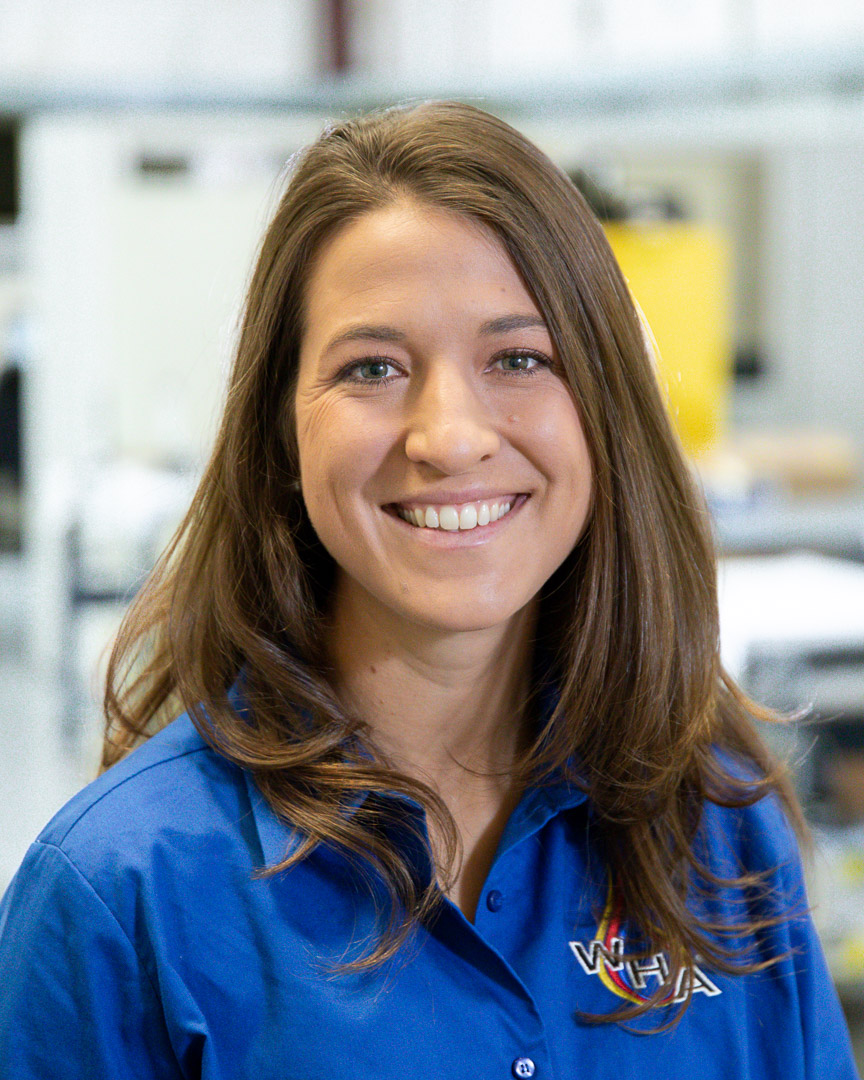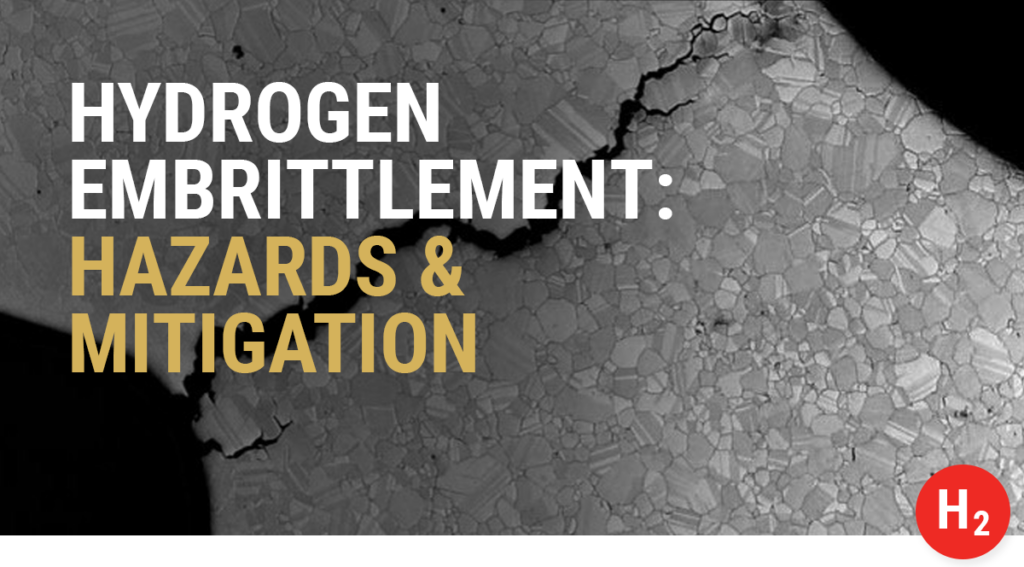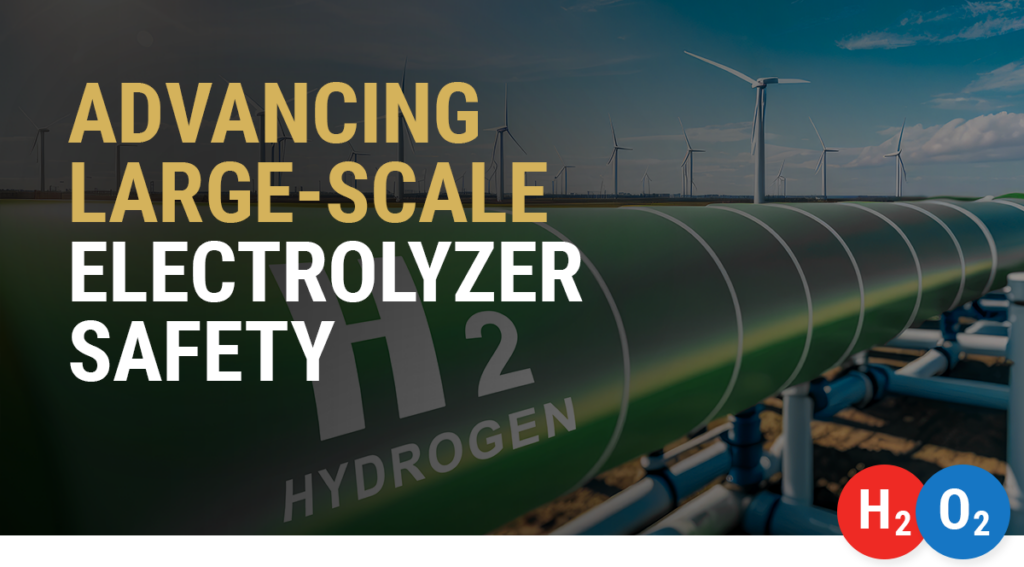Hydrogen safety training FAQs with Dani Murphy, PhD
Through series of interactive live webinars, WHA International offers virtual hydrogen safety training, covering the full content of WHA’s cumulative Level 2: H2 Practice, Level 3: H2 Design and Level 4: H2 Analyze courses. Topics include:

- Properties of hydrogen
- Materials compatibility
- Factors contributing to ignition
- Extensive good practices related to operating and maintaining hydrogen systems
- Hydrogen system design (Level 3-4)
- Hydrogen combustion risk analysis (HCRA) methods (Level 3-4)
To get ready for a recent training event, we spoke with Dani Murphy, PhD, one of our course instructors and resident hydrogen experts…
1. Of course, the hydrogen economy is experiencing some impressive growth right now. What industries do you expect to see represented at this course?
The better question might be, “what industries do we not expect to be represented?” Hydrogen is a hot topic right now. We will see students from the energy sector, transportation, the chemical processing industry, as well as new players using hydrogen for the first time in research and development.
2. What kinds of people are coming? Are these primarily technical experts or will we have some hydrogen beginners in the group?
Both. We have seen a tremendous range of people from different backgrounds attending the courses, and the levels are staged so that each participant gets what they want out of the course. We have taught everyone from first-time hydrogen users to engineers who have spent most of their careers using hydrogen.
3. What are some of the biggest hydrogen safety needs you perceive right now? What knowledge gaps are you filling in the industry?
Perhaps most notably, we help provide perspective on how hydrogen is different—and must be treated differently—from more familiar fuels. This is critically important to the safe use of hydrogen. We teach that hydrogen is not more or less hazardous than other fuels, it is just different.
4. WHA is known for its oxygen safety training courses, but you’ve been hosting regular hydrogen safety training courses for some time now. What’s the relationship between those two subjects? How has your O2 training experience equipped you to teach H2 as well? How is it different?
At WHA, we are experts in combustion. For combustion to occur, you must bring together both an oxidizer and a fuel. They go hand in hand. Although we work a lot in oxygen safety to prevent or investigate oxygen fires, not all of us come from an oxygen background. I actually have my roots in hydrogen—I completed my PhD researching fuel cell systems and worked for the National Renewable Energy Laboratory (NREL) on electrolyzers and hydrogen fueling stations. My oxygen experience started accumulating after I completed my PhD.
5. As fast as the industry is moving, have you incorporated any new hydrogen technologies or concepts into this upcoming course?
Yes, we actually re-worked the entire course over the last two years to incorporate updated technologies, operating conditions, and standards. We have provided hydrogen safety training since the 1990’s, but today’s course content looks very different from the original course.
6. This course is presented as an “interactive live webinar;” what is that experience like?
Well for us it can feel a bit like talking to yourself… but I’m joking! We actually have a lot of participation and Q&A throughout the course. We encourage lots of interaction, and recent improvements to webinar platforms enable this style of training.
Each day, we host a five-hour session which include the same instruction, demonstration videos, and course materials you would experience at an in-person event. Throughout the day we have a moderated chat feature, and we break frequently for live Q&A, allowing participants to come on-screen for in-depth discussion. We’ve had very positive feedback from this virtual format, and many people actually prefer it to traveling for an in-person course. During our online sessions, we see participants from all over the U.S. and even overseas.
7. Outside of technical training, how does your daily work involve hydrogen? Are you working on any new research or notable projects?
The uptick in hydrogen work has been tremendous over the past year. I now spend probably 75% of my time on hydrogen-related projects—either hazards analyses, safety consulting, training, failure analysis cases involving hydrogen, or research projects.
We are currently working on a large research project involving safe storage of reactive synthesis gases containing hydrogen. Testing for this project will be at our remote test facility where we will ignite the reactive gas and evaluate the rupture dynamics of storage cylinders.
8. Any final thoughts or encouragement for prospective students?
WHA’s courses are not your average hydrogen safety training. Yes, you will walk away with a thorough understanding of hydrogen safety topics, but the content is also interesting and entertaining. We incorporate fire and explosion videos and failure analysis case studies throughout, and we aim to bring the content back to what is really relevant to people working around hydrogen or designing hydrogen system. This course content is designed to be used.
Attend our next hydrogen safety course.
Visit our training events page to find more information about upcoming hydrogen safety training opportunities.
Share this entry
Related Articles
Hydrogen Embrittlement: Hazards and Mitigation Strategies
Hydrogen embrittlement (HE) is a critical concern in industries utilizing hydrogen, posing significant safety concerns if not…
Advancing Large-Scale Electrolyzer Safety
Electrolyzer safety is becoming increasingly important as the industry undergoes significant change to meet the growing demand…
Will hydrogen power the future of Aerospace?
As the world moves towards clean energy technologies, finding alternatives to traditional fuels is particularly challenging in…
Request an expert
consultation
Contact us to request a free consultation with an experienced engineer who can help you better understand your needs and our solutions.



